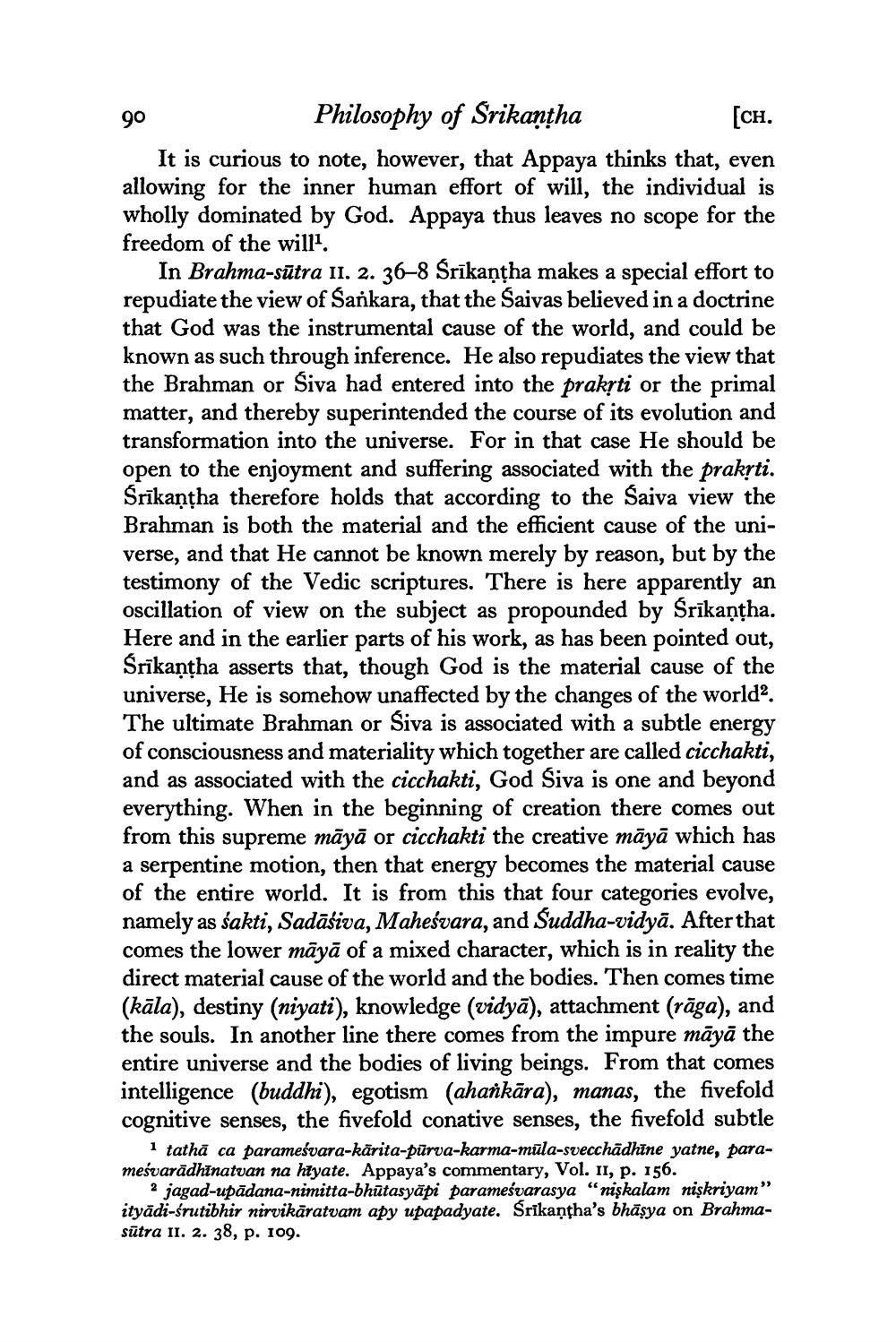________________
90
Philosophy of Srikantha
[CH. It is curious to note, however, that Appaya thinks that, even allowing for the inner human effort of will, the individual is wholly dominated by God. Appaya thus leaves no scope for the freedom of the willi.
In Brahma-sūtra II. 2. 36–8 Śrīkaņķha makes a special effort to repudiate the view of Sarkara, that the Saivas believed in a doctrine that God was the instrumental cause of the world, and could be known as such through inference. He also repudiates the view that the Brahman or Siva had entered into the prakrti or the primal matter, and thereby superintended the course of its evolution and transformation into the universe. For in that case He should be open to the enjoyment and suffering associated with the prakrti. Srikantha therefore holds that according to the Saiva view the Brahman is both the material and the efficient cause of the universe, and that He cannot be known merely by reason, but by the testimony of the Vedic scriptures. There is here apparently an oscillation of view on the subject as propounded by Srikaņpha. Here and in the earlier parts of his work, as has been pointed out, Śrīkaņtha asserts that, though God is the material cause of the universe, He is somehow unaffected by the changes of the world2. The ultimate Brahman or Siva is associated with a subtle energy of consciousness and materiality which together are called cicchakti, and as associated with the cicchakti, God Siva is one and beyond everything. When in the beginning of creation there comes out from this supreme māyā or cicchakti the creative māyā which has a serpentine motion, then that energy becomes the material cause of the entire world. It is from this that four categories evolve, namely as śakti, Sadāśiva, Maheśvara, and Suddha-vidyā. After that comes the lower māyā of a mixed character, which is in reality the direct material cause of the world and the bodies. Then comes time (kāla), destiny (niyati), knowledge (vidyā), attachment (rāga), and the souls. In another line there comes from the impure māyā the entire universe and the bodies of living beings. From that comes intelligence (buddhi), egotism (ahankāra), manas, the fivefold cognitive senses, the fivefold conative senses, the fivefold subtle
1 tathā ca parameśvara-kärita-pūrva-karma-mūla-svecchādhine yatne, parameśvarādhinatvan na hiyate. Appaya's commentary, Vol. II, p. 156.
2 jagad-upādana-nimitta-bhūtasyāpi parameśvarasya "nişkalam nişkriyam" ityādi-śrutibhir nirvikāratvam apy upapadyate. Srikantha's bhāsya on Brahmasūtra II. 2. 38, p. 109.




